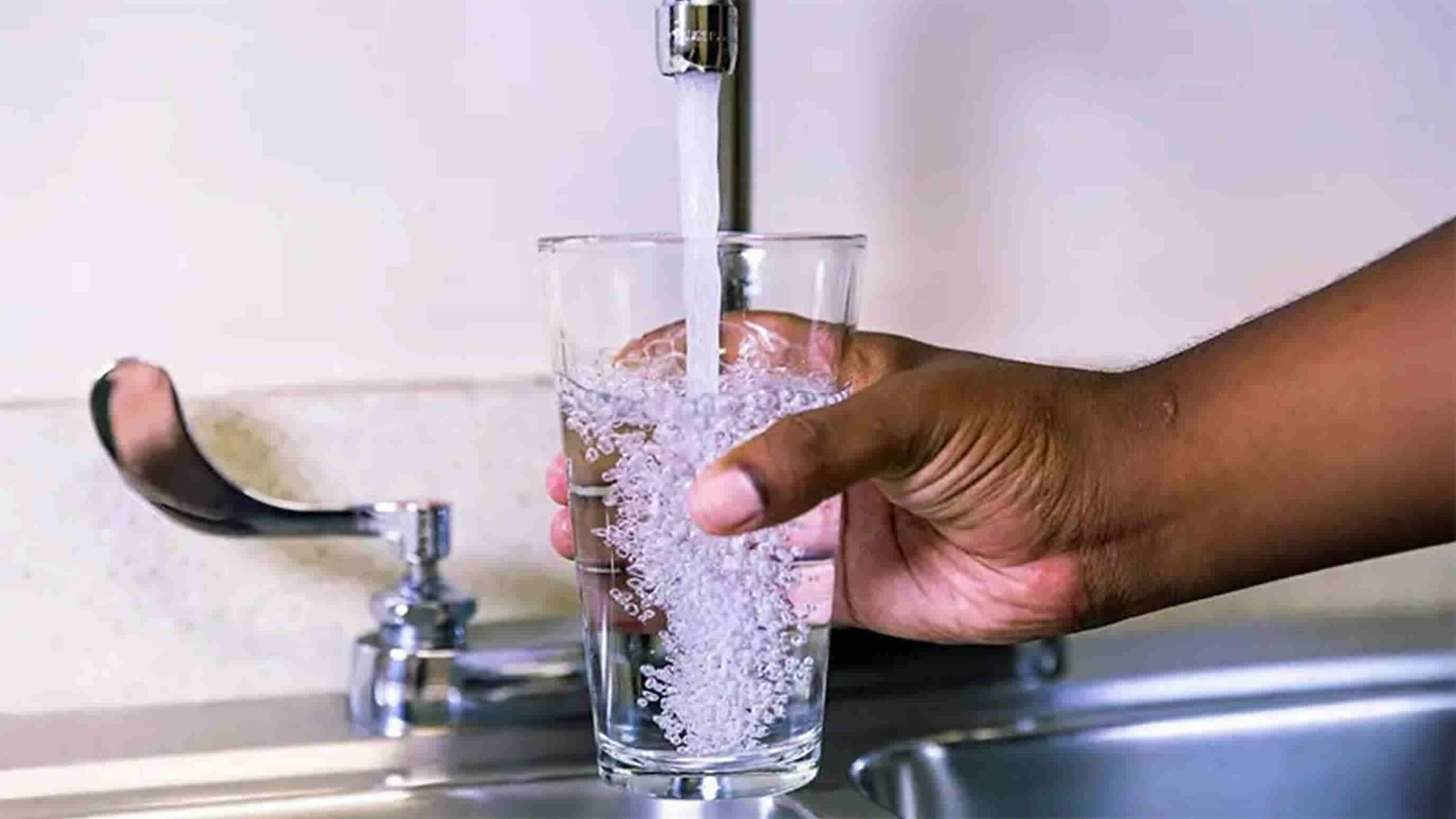This article dives into the safety of drinking tap water in London, England, and gives you the lowdown on what you need to know. Spoiler alert: it’s generally safe, but there are some quirks. So, let’s get into it, shall we?
Understanding London’s Water Supply
London gets its water from a mix of sources, including rivers and underground aquifers. It’s kinda fascinating, but also a bit confusing if you don’t know the details. Like, why do they even bother with all these sources? I mean, can’t they just stick to one? But hey, variety is the spice of life, right?
Quality Standards of Tap Water
The tap water in London meets strict quality standards. Not really sure why this matters, but hey, it’s good to know they’re not just pouring it straight from the Thames. Imagine that! You’d probably need a lifetime supply of bottled water if that were the case.
Regulatory Bodies Involved
There are organizations that monitor the water quality. You might think, “who cares?” But they actually play a big role in making sure we don’t get sick from our tap water. Like, thanks guys! You’re the real MVPs.
Environmental Agency’s Role
The Environmental Agency sets guidelines for water safety. I mean, it’s their job, right? So, you can trust them… mostly. I mean, who doesn’t love a good set of guidelines? It’s like a rulebook for water!
Thames Water’s Responsibilities
Thames Water is the main supplier in London. They’re like the water superheroes, making sure we have clean water flowing from our taps. But, like, do they ever get tired of being heroes? I guess it’s a calling.
Water Treatment Processes
Water goes through treatment processes before it reaches your tap. It’s like a spa day for water, but with chemicals and stuff. Sounds fancy, huh? But seriously, what’s in that spa treatment? I hope it’s not too much of the bad stuff.
Common Contaminants in Tap Water
Not everything is sunshine and rainbows. There are some contaminants that can show up in our tap water, but don’t freak out just yet. Let’s break it down.
- Chlorine and Fluoride: Chlorine is used to disinfect water, while fluoride is added for dental health. Some folks are all about that fluoride, while others think it’s a conspiracy. It’s a mixed bag, really.
- Lead Levels: Lead can be a concern, especially in older buildings. If you’re living in a Victorian flat, maybe think twice about that tap water. Just saying.
Health Benefits of Drinking Tap Water
Drinking tap water can be good for you, but it’s not all rainbows and butterflies. Hydration is key, but you gotta be smart about it. Like, don’t drink it if you know it’s sketchy, right?
Hydration and Well-being
Staying hydrated helps with everything from skin health to brain function. But if your water’s sketchy, it might do more harm than good. So, yeah, be cautious!
Cost-Effectiveness
Tap water is way cheaper than bottled water. Seriously, if you’re still buying bottled, what are you doing with your life? It’s like throwing money down the drain, literally!
Local Opinions on Tap Water
People in London have mixed feelings about drinking tap water. Some love it, while others are like, “nah, I’ll stick to bottled.”
Survey Results
A recent survey showed that many Londoners trust their tap water. But there’s always the skeptics, rolling their eyes and clutching their bottled water. It’s like a never-ending debate!
Social Media Buzz
Social media is full of opinions on tap water. Some people are all about the taste, while others think it’s just plain gross. Who knows? Maybe it’s just me, but I feel like it’s all subjective.
Conclusion: Should You Drink Tap Water in London?
In conclusion, drinking tap water in London is generally safe, but it’s always good to be aware of your surroundings. Trust your gut, and maybe invest in a filter just in case. Better safe than sorry, right?
Understanding London’s Water Supply
So, London gets its water from a bunch of different sources, which is kinda cool, but also a bit of a head-scratcher if you’re not in the know. They draw from rivers, like the Thames (yes, the same one that’s famous for, um, not being the cleanest), and also from underground aquifers. These aquifers are basically nature’s giant sponges, soaking up rainwater and filtering it through layers of soil. But here’s the kicker: not every drop of water is the same. You might think, “Water is water,” but oh boy, you’d be wrong!
| Source | Details |
|---|---|
| Rivers | Includes the Thames and River Lea. They can be a bit dirty, but they’re treated. |
| Underground Aquifers | Natural filtration happens here, making it cleaner, usually. |
Now, you might be wondering why this matters. Well, it’s kinda important because the **quality of tap water in London** can vary depending on where you live. Some areas might get more river water, while others might rely more on those fancy underground sources. Not really sure why this matters, but it does, trust me. It’s like choosing between a burger from a fast-food joint and a gourmet one from a fancy restaurant. They’re both burgers, but one is definitely better!
- Rivers: They can be polluted, but they’re treated before reaching your tap.
- Aquifers: Generally cleaner, thanks to natural filtration.
- Mix of Sources: Most Londoners get a bit of both, so it’s like a water cocktail.
And let’s not forget about the environmental impact. The water supply system in London is under constant scrutiny. There’s always some group or another checking to make sure the water is safe to drink. I mean, who wants to drink water that’s questionable, right? But, you know, sometimes I wonder if these organizations are just sitting around drinking tea while we’re out here trying to figure out if our water is safe. Maybe it’s just me, but I feel like they could do a better job of keeping us informed.
Also, there’s this whole water treatment process that happens before the water even touches your glass. It’s like a spa day for water, but instead of cucumbers on their eyes, they get all sorts of chemicals to make them safe. Sounds fancy, huh? But seriously, the treatment involves filtration, disinfection, and all that jazz. So, while you might think “Ew, chemicals,” it’s actually a necessary evil.
In conclusion, understanding where London’s water comes from is a bit like peeling an onion—there are layers, and it might make you cry a little. But knowing that it’s sourced from rivers and aquifers, and treated properly, should give you some peace of mind. Just remember, if you’re in an old building, maybe think twice before guzzling that tap water. Better safe than sorry, right?
Quality Standards of Tap Water
The tap water in London is, like, a big deal when it comes to quality. I mean, it’s not just some random liquid they pull from the Thames and call it good. Nope! London’s tap water actually meets strict quality standards set by various regulatory bodies. Not really sure why this matters, but hey, it’s good to know they’re not just pouring it straight from the Thames, right?
So, here’s the scoop: London’s water comes from a mix of sources, including rivers and underground aquifers. It’s kinda fascinating, but also a bit confusing if you don’t know the details. You might be thinking, “Isn’t all water the same?” Well, not exactly. There’s a whole process that goes into making sure our tap water is safe to drink. It’s like a spa day for water, but with chemicals and stuff. Sounds fancy, huh?
| Source | Quality Control |
|---|---|
| Rivers | Regular testing for contaminants |
| Underground Aquifers | Filtration and purification |
Now, let’s talk about the regulatory bodies involved. There are organizations that monitor the water quality, and you might think, “Who cares?” But they actually play a big role in making sure we don’t get sick from our tap water. The Environmental Agency sets guidelines for water safety, and I mean, it’s their job, right? So, you can trust them… mostly.
And then there’s Thames Water, the main supplier in London. They’re like the water superheroes, making sure we have clean water flowing from our taps. But, here’s the kicker: not everything is sunshine and rainbows. There are some contaminants that can show up in our tap water, but don’t freak out just yet.
- Chlorine: Used to disinfect water.
- Fluoride: Added for dental health, but some folks are all about that fluoride, while others think it’s a conspiracy.
- Lead Levels: Can be a concern, especially in older buildings. If you’re living in a Victorian flat, maybe think twice about that tap water. Just saying.
But, drinking tap water can actually be good for you. Staying hydrated helps with everything from skin health to brain function. But if your water’s sketchy, it might do more harm than good. Also, let’s not forget about the cost-effectiveness. Tap water is way cheaper than bottled water. Seriously, if you’re still buying bottled, what are you doing with your life?
In conclusion, drinking tap water in London is generally safe, but it’s always good to be aware of your surroundings. Trust your gut, and maybe invest in a filter just in case. I mean, it’s better to be safe than sorry, right? So, the next time you’re in London, go ahead and fill up that glass with tap water. Just maybe give it a little sniff first, you know?
Regulatory Bodies Involved
When it comes to the safety of our drinking water, understanding the is crucial. You might think, “who cares?” but these organizations are vital in ensuring that the water we drink is safe and clean. Seriously, without them, we could be sipping on all sorts of nasty stuff.
First off, let’s talk about the Environmental Agency. This agency sets guidelines for water safety, and it’s their job to monitor and regulate the quality of water supplies across the UK. Not really sure why this matters, but it’s good to know that someone is keeping an eye on things, right? They have strict standards that water suppliers must meet, which is pretty reassuring. But, hey, it’s not all rainbows and butterflies.
Next up is Thames Water, the main supplier in London. They’re like the water superheroes, making sure we have clean water flowing from our taps. They do a lot of work behind the scenes to ensure that the water is treated and safe for consumption. But can we really trust them? I mean, they have a lot of responsibility, and let’s be honest, mistakes can happen. But overall, they do a decent job of keeping our water clean.
Now, let’s dive into the water treatment processes. Water goes through a lot before it reaches your tap. It’s like a spa day for water, but with chemicals and stuff. Sounds fancy, huh? They use various methods like filtration and chlorination to make sure the water is safe. But, here’s the kicker: sometimes, the chemicals they use can be a bit controversial. For instance, chlorine is added to disinfect the water, but some people think it leaves a weird taste. It’s a mixed bag, really.
| Regulatory Body | Role | Public Trust Level |
|---|---|---|
| Environmental Agency | Sets guidelines and monitors water safety | Generally high, but some skepticism remains |
| Thames Water | Main supplier, responsible for treatment and distribution | Varies; some trust them, others are cautious |
Common contaminants can show up in our tap water, but don’t freak out just yet. There are things like chlorine and fluoride that are added for health benefits. Chlorine helps kill bacteria, and fluoride is supposed to be good for your teeth. But some folks are all about that fluoride, while others think it’s a conspiracy. It’s a mixed bag, and opinions vary widely.
Another concern is lead levels, especially in older buildings. If you’re living in a Victorian flat, maybe think twice about that tap water. Just saying. Lead can leach into the water from old pipes, and that’s definitely not something you want to mess with. So, if you’re in an older place, a filter might be a good idea.
In conclusion, the in monitoring water quality play a significant role in ensuring our tap water is safe to drink. While there are some contaminants and concerns, the overall system is designed to protect us. Just keep an eye on things, trust your gut, and maybe invest in a filter if you’re feeling unsure. After all, it’s better to be safe than sorry!
Environmental Agency’s Role
The Environmental Agency has a pretty crucial job when it comes to ensuring that our water is safe to drink. I mean, it’s like, their whole deal, right? But let’s be real for a second—can we really put all our trust in them? I guess we kinda have to, but there’s always that nagging doubt in the back of my mind.
So, what exactly does this agency do? Well, they set guidelines for water safety, which sounds super important and all. They monitor the quality of water, making sure it meets certain standards. You’d think that’s a no-brainer, but with all the stuff going on in the world, it’s not like we can just assume everything is peachy.
Here’s a little breakdown of their responsibilities:
- Regulation of Water Quality: They ensure that water suppliers follow strict rules.
- Monitoring Contaminants: They keep an eye on harmful substances like lead and bacteria.
- Public Awareness: They inform the public about water safety issues, which is nice, but sometimes I wonder if they really get through to everyone.
It’s not just about setting rules, though. The Environmental Agency also conducts research to understand how different factors affect water quality. Like, who knew that rainfall patterns could mess with our drinking water? Not really sure why this matters, but it does. And it’s kinda scary if you think about it.
Now, let’s talk about Thames Water, the main supplier in London. They’re like the superheroes of the water world, swooping in to save the day with their clean water. But even superheroes have their flaws. There’s always a chance that something could go wrong. You might think, “Oh, they’re just a big company, they have it all under control,” but that’s not always the case. Sometimes it feels like they’re just winging it.
Here’s a quick table that shows some of the key roles of the Environmental Agency and Thames Water:
| Agency | Role | Key Focus |
|---|---|---|
| Environmental Agency | Regulation and Monitoring | Water Quality Standards |
| Thames Water | Water Supply | Delivery of Clean Water |
But let’s not forget the quirks of drinking tap water. Sure, it’s generally safe, but there are contaminants that can pop up now and then. Like, chlorine is used to disinfect water, and fluoride is added for dental health. Some people are totally on board with that, while others think it’s just a conspiracy. It’s a mixed bag, honestly.
And then there’s the issue of lead levels, especially in older buildings. If you’re living in one of those cute Victorian flats, maybe think twice about that tap water. Just saying. I mean, who wants to risk a little lead poisoning, right?
In conclusion, the Environmental Agency plays a vital role in maintaining water safety, but it’s always good to stay informed and maybe even invest in a filter. Trust your gut, because, at the end of the day, it’s your health we’re talking about here. So, stay hydrated, but do it smartly!
Thames Water’s Responsibilities
Thames Water is, like, the main supplier of water in London. They’re kinda like the water superheroes, swooping in to ensure that we have clean water flowing from our taps. But, let’s be real for a second — there’s a lot more to their responsibilities than just looking cool in a cape. So, let’s dive into what they actually do. Spoiler alert: it’s not all that glamorous.
First off, Thames Water is responsible for delivering fresh drinking water to millions of Londoners. I mean, that’s a big deal, right? They source water from rivers, reservoirs, and underground aquifers. It’s fascinating but also a bit complicated. They have to make sure that the water is not only clean but also tastes good. I guess nobody wants to drink water that tastes like, I don’t know, a fish tank?
| Water Sources | Key Features |
|---|---|
| Rivers | Natural filtration, but can be affected by pollution. |
| Reservoirs | Stored water, often treated before distribution. |
| Underground Aquifers | Natural filtration, usually cleaner but can be over-extracted. |
Next up, they have to monitor water quality. There are all these strict regulations that they gotta follow, which is good, I guess? But honestly, not really sure why this matters to some people. Maybe it’s just me, but I feel like if I can drink it without turning green, we’re doing okay. They test for contaminants like lead and chlorine — you know, the usual suspects. And yes, lead is a big deal, especially in older buildings. So, if you live in a Victorian flat, maybe think twice about that tap water.
- Lead: Can leach from old pipes.
- Chlorine: Used for disinfection, but some folks aren’t fans.
- Fluoride: Added for dental health, but controversial.
Then there’s the whole water treatment process. It’s not just a straight shot from the river to your tap. Nope, it’s more like a spa day for water — it gets filtered, treated with chemicals, and then pumped out to us. Sounds fancy, huh? But let’s be real, it’s not exactly a luxurious experience for the water.
Now, Thames Water also has to deal with infrastructure maintenance. They gotta fix leaks, replace old pipes, and all that jazz. It’s a never-ending job, and honestly, it’s like trying to keep a house clean with a bunch of toddlers running around. Just when you think everything’s fine, BOOM, another leak pops up. And trust me, nobody wants to be the person who has to call them at 2 AM because their basement is flooding.
In conclusion, Thames Water is not just about delivering water; they’re like the backbone of London’s water supply. They handle everything from water quality monitoring to infrastructure maintenance. So, the next time you turn on your tap, remember the water superheroes working behind the scenes. It’s a tough gig, but someone’s gotta do it. And hey, if you’re ever in doubt about your tap water, just think of Thames Water and their superhero responsibilities!
Water Treatment Processes
are kinda like the behind-the-scenes magic that happens before that refreshing glass of water hits your lips. You might think it’s just a simple process, but honestly, it’s way more complicated than it seems. It’s not just about filling up a bottle with water from the tap, no way! It’s like a whole spa day for water, but instead of cucumber slices and soothing music, we got chemicals doing their thing. Sounds fancy, huh?
First off, let’s talk about where London gets its water. It mainly comes from rivers and underground aquifers, which is kinda cool if you think about it. But like, why should we care? Well, it’s important because the source can affect the quality of our tap water. So, before it even gets to your tap, it goes through a series of treatments. Here’s a quick rundown:
| Step | Description |
|---|---|
| 1. Coagulation | This is where they add chemicals to clump together particles and make them easier to remove. It’s like when you try to clean your room and just shove everything into a corner. |
| 2. Sedimentation | After coagulation, the water sits for a while so the heavy stuff can settle down at the bottom. Think of it as the water taking a breather. |
| 3. Filtration | Next, the water is passed through filters to catch any leftover gunk. It’s like a coffee filter, but for water! |
| 4. Disinfection | Finally, they add chlorine or other disinfectants to kill any remaining bacteria. It’s like putting on hand sanitizer after you touch something gross. |
Now, you might be wondering, “Is this really necessary?” Well, not really sure why this matters, but it’s crucial for keeping our drinking water safe. I mean, who wants to sip on something that could make them sick? Not me, thanks!
But here’s where it gets a bit tricky. Some people have concerns about the chemicals used in these processes. For instance, chlorine is great at killing germs, but it can also produce some byproducts that aren’t so great for us. Maybe it’s just me, but I feel like there’s always a trade-off with these things. And don’t even get me started on fluoride! Some folks swear by it for dental health, while others think it’s a government conspiracy. You can’t win!
And let’s not forget about lead levels. If you’re living in an older building, that could be a bit of a problem. Lead can leach from pipes, especially if they’re super old. So, if you’re in a Victorian flat, maybe think twice about that tap water. Just saying.
In conclusion, the in London are pretty thorough, but it’s always good to be aware of what’s going on. Drinking tap water is generally safe, but if you’re ever in doubt, a good water filter can be your best friend. You know, just to ensure you’re not drinking anything questionable. So, raise your glass, but maybe do it with a hint of caution!
Common Contaminants in Tap Water
So, let’s dive into the not-so-glamorous side of tap water. It’s like, not everything is sunshine and rainbows, right? There are some contaminants that can show up in our tap water, but don’t freak out just yet. I mean, it’s not like we’re living in a horror movie or something. But still, it’s good to know what you might be sipping on.
- Chlorine: This is used to disinfect the water. You know, kill all the nasty stuff. But, like, do we really wanna be drinking bleach? Not really sure why this matters, but it’s a thing.
- Fluoride: Some folks are all about that fluoride for their teeth, while others think it’s a conspiracy from the toothpaste companies. I mean, who knows? Maybe it’s just me, but I feel like it’s a mixed bag.
- Lead: Now, this is where it gets a bit scary. Lead can be a concern, especially in older buildings. If you’re living in a Victorian flat, maybe think twice about that tap water. Just saying. It’s not like we want to end up like those cartoons where the characters have big heads and tiny bodies, right?
Now, I found this table that breaks down the common contaminants and their sources. Check it out:
| Contaminant | Source | Health Effects |
|---|---|---|
| Chlorine | Water treatment | Skin irritation, taste issues |
| Fluoride | Dental health additive | Possible dental fluorosis |
| Lead | Old plumbing | Neurological issues, developmental problems |
And here’s the kicker: while these contaminants are present, the levels are usually within safe limits. But, like, what does “safe” even mean? It’s all a bit subjective, right? I mean, one person’s poison is another person’s lemonade, or whatever that saying is.
Also, let’s not forget about the taste. Some people are all about the “fresh from the tap” vibe, while others are like, “nah, I’ll stick to bottled.” It’s a real debate, folks. I mean, who knew water could be such a hot topic? But hey, whatever floats your boat.
In conclusion, being aware of the is crucial. It’s like, knowledge is power, or something like that. So, keep your eyes peeled and maybe invest in a filter if you’re feeling a bit sketchy about your tap water. Just remember, it’s not all doom and gloom. As long as you’re informed, you’ll be just fine.
Chlorine and Fluoride
are two of the most talked-about substances when it comes to tap water, especially in London. It’s kind of a big deal, but honestly, I’m not really sure why some people get all worked up about it. Like, have you ever tried to figure out the whole chlorine thing? It’s used to disinfect water, which is great because, you know, nobody wants to drink water that’s crawling with germs. But then again, some folks are like, “Ew, chlorine!”
On the flip side, we got fluoride. It’s added to water for dental health, which sounds awesome, right? Who doesn’t want a dazzling smile? But here’s where it gets juicy: there’s a whole bunch of people who think it’s a conspiracy. Like, really? Are we living in a movie? Some folks swear by fluoride, while others think it’s some sort of government plot to control our minds or something. It’s a mixed bag, to say the least.
| Substance | Purpose | Controversy Level |
|---|---|---|
| Chlorine | Disinfects water | Moderate |
| Fluoride | Dental health | High |
So, let’s break it down a bit. Chlorine is like the superhero of the water treatment world. It swoops in, takes out the bad guys (aka bacteria), and makes sure our water is safe to drink. But, if you’ve ever taken a whiff of pool water, you know it has a distinct smell. Some people say it tastes funny, and I get that. But hey, it’s better than the alternative, right?
- Chlorine: Helps keep our water clean.
- Fluoride: Promotes healthy teeth.
- Controversy: Divides opinions.
Now, as for fluoride, it’s a whole different ball game. Some studies show that it can help reduce cavities, which is pretty cool if you ask me. But then there are those who believe it’s harmful. Maybe it’s just me, but I feel like there’s always gonna be some debate about what’s good for us. You can’t please everyone, right?
Here’s a quick summary:- Chlorine good for disinfection- Fluoride good for teeth- Both have their fans and critics
In the end, whether you’re a fan of chlorine or fluoride, it’s essential to stay informed. Just because something is in your water doesn’t mean it’s bad. But also, it doesn’t hurt to do a little research. Maybe get a filter if you’re really worried? It’s always better to be safe than sorry, or so they say.
So, next time you turn on the tap, think about what’s in your water. It’s a mix of science, health, and a little bit of conspiracy theory. And who knows? Maybe you’ll become a water expert yourself. Or not. Either way, stay hydrated!
Lead Levels
Lead in tap water can be a real concern, especially if you live in an old building like a Victorian flat. I mean, who wants to be sipping on something that could potentially mess with their health, right? Just saying! So, let’s dive into this whole lead levels thing and see what’s up.
First off, lead can leach into your drinking water from old pipes. The older the building, the higher the chance of lead lurking in those pipes. It’s kinda like finding a hidden treasure, but instead of gold, you find lead. Not really the jackpot you were hoping for, huh? To put it simply, if your flat is from the Victorian era, you might wanna think twice about that tap water. Just a thought!
| Building Age | Lead Risk Level |
|---|---|
| Pre-1950s | High |
| 1950s-1980s | Medium |
| Post-1980s | Low |
So, here’s the deal: lead exposure can lead to some serious health issues. We’re talking about developmental problems in kids, and for adults, it can mess with your blood pressure and even kidney function. Not really sure why this matters, but it does! The Centers for Disease Control and Prevention (CDC) has some pretty alarming stats on lead exposure, and it’s enough to make you rethink that glass of water.
- Health Effects of Lead:
- Brain damage in children
- Increased blood pressure
- Kidney damage
- Symptoms of Lead Poisoning:
- Headaches
- Stomach pain
- Nausea
Now, you might be wondering, “What can I do about this?” Well, first things first, you can get your water tested. It’s not as scary as it sounds, and it can give you peace of mind. Plus, knowing the lead levels in your water can help you make informed choices. If it turns out your water is high in lead, you might wanna think about using a water filter or drinking bottled water. Not ideal, but better safe than sorry, right?
And let’s not forget about the importance of keeping your plumbing in check. Regular maintenance can help reduce the risk of lead contamination. If you’re renting, don’t be shy about asking your landlord to check for lead pipes. It’s your health on the line!
In conclusion, lead levels in tap water can be a serious issue, especially in older buildings like Victorian flats. It’s always better to be cautious and informed. Maybe it’s just me, but I feel like everyone should be aware of what’s flowing from their taps. So, keep an eye on those lead levels, and stay hydrated — just maybe not with that old tap water!
Health Benefits of Drinking Tap Water
Alright, so let’s dive into the . You might be thinking, “Isn’t all water the same?” Well, not exactly. Drinking tap water can actually be pretty good for you, but hey, it’s not all rainbows and butterflies, you know? Hydration is super important, but you gotta be smart about it.
First off, staying hydrated is like, the key to feeling good. It helps with everything from skin health to brain function. Seriously, when you’re dehydrated, you might feel like a zombie—no energy, no focus. But if your water’s sketchy, it might do more harm than good. So, like, what’s the point of drinking it if it’s not safe? Not really sure why this matters, but it does, trust me.
Now, let’s talk about the cost-effectiveness of tap water. I mean, come on, tap water is way cheaper than bottled water. If you’re still buying bottled, what are you doing with your life? You could save so much cash by just filling up a reusable bottle. Plus, you’re helping the environment by cutting down on plastic waste. Win-win, right?
Here’s a quick table to show how much you can save:
| Type of Water | Average Cost per Liter | Annual Cost (based on 2 liters/day) |
|---|---|---|
| Bottled Water | £1.00 | £730 |
| Tap Water | £0.002 | £1.46 |
So, yeah, you can see the difference. But let’s not forget about the local opinions on tap water. People in London have mixed feelings about drinking it. Some love it, while others are like, “Nah, I’ll stick to bottled.” A recent survey showed that many Londoners trust their tap water, but there’s always the skeptics, rolling their eyes and clutching their bottled water. Maybe it’s just me, but I feel like some folks just enjoy being dramatic about it.
And then there’s the whole social media buzz around tap water. Some people are all about the taste, while others think it’s just plain gross. Like, really? It’s water! But I guess taste is subjective. If you’re used to the fancy stuff, maybe tap water isn’t your cup of tea. But hey, give it a shot! You might be surprised.
Now, let’s not forget about the common contaminants in tap water. Sure, it’s generally safe, but there are some things to watch out for. Chlorine is used to disinfect water, and while it’s great for keeping things clean, some people can definitely taste it. And then there’s fluoride, which is added for dental health. Some folks are all about that fluoride, while others think it’s a conspiracy. It’s a mixed bag.
Lastly, if you’re living in an older building, lead can be a concern. If you’re in a Victorian flat, maybe think twice about that tap water. Just saying. Always good to be cautious, right?
In conclusion, drinking tap water can be good for you, but you gotta be smart about it. Stay hydrated, save some cash, and maybe invest in a filter just in case. Your body will thank you!
Hydration and Well-being
is like one of those buzzwords that everyone throws around, but honestly, it’s kinda important. Staying hydrated helps with everything from skin health to brain function. But if your water’s sketchy, it might do more harm than good. Like, who wants to drink water that could be more dangerous than a double espresso at midnight? Not me!
First off, let’s talk about why hydration is crucial. Our bodies are made up of about 60% water, which is wild when you think about it. It’s like we’re walking water balloons! So, when you’re not drinking enough, it’s like trying to run a car on empty. You just can’t function right. But, here’s the kicker: if your water quality is questionable, you might as well be drinking from a garden hose. And no one wants that, right?
- Skin Health: Staying hydrated can keep your skin looking fresh and plump. Dehydration can lead to dryness, which is like, totally not the look we’re going for.
- Brain Function: Did you know that even mild dehydration can affect your mood and cognitive abilities? Yeah, so if you’re feeling cranky, maybe grab a glass of water instead of a snack.
- Digestive Health: Water helps with digestion. Without enough, you might end up feeling all bloated and uncomfortable. No thanks!
But here’s where it gets tricky. Not all water is created equal. You might think, “Oh, I’ll just drink tap water,” but if you live in an area with questionable water quality, that’s a big no-no. I mean, it’s not like we’re in some fancy spa where the water is filtered and purified. We’re talking about the tap water that might have more mystery ingredients than a fast-food burger. So, if you’re unsure about your water, maybe consider a water filter or stick to bottled. Just don’t go overboard with the bottled stuff, because that’s not great for the environment either.
| Hydration Benefits | Potential Risks of Poor Water Quality |
|---|---|
| Improved Skin Health | Dry, flaky skin |
| Better Brain Function | Increased irritability and fatigue |
| Enhanced Digestion | Stomach issues and bloating |
So, what’s the bottom line? Staying hydrated is super important for your overall well-being, but you gotta be smart about where that hydration is coming from. It’s like buying a fancy smoothie but then realizing it’s made with expired fruit. Yikes! Maybe it’s just me, but I feel like we should all be a little more conscious about our water sources.
In conclusion, hydration is key, but make sure you know what you’re drinking. Your body is counting on you to make wise choices, and no one wants to be the one who gets sick from sketchy water. So, next time you fill up your glass, just take a moment to think about what you’re really pouring into your body. Cheers to better hydration!
Cost-Effectiveness
So, let’s talk about the cost-effectiveness of tap water versus bottled water. Seriously, if you’re still buying bottled, what are you doing with your life? It’s like throwing money down the drain, no pun intended. I mean, have you seen the price of bottled water these days? It’s outrageous! You could be spending that cash on something way more important, like a night out or a new pair of shoes. But hey, maybe that’s just me.
Now, let’s break it down a bit. According to some reports, the average cost of tap water in London is about £0.001 per liter. On the flip side, bottled water can set you back around £1.00 for a 500ml bottle. Do the math, and it’s a no-brainer. You’re basically paying 1,000 times more for something that you can get straight from your tap. Crazy, right?
| Water Type | Cost per Liter |
|---|---|
| Tap Water | £0.001 |
| Bottled Water | £1.00 |
And let’s not forget the environmental impact. Buying bottled water is like saying, “Hey, I love plastic!” Seriously, it’s a huge contributor to pollution. You know those plastic bottles that end up in the ocean? Yeah, they’re not going away anytime soon. So, if you’re looking to save the planet while saving some bucks, tap water is the way to go. But I get it, some folks are just attached to their fancy bottled stuff. Maybe it’s the convenience or the taste? Who knows?
- Convenience: Bottled water is portable. You can grab it on the go.
- Taste: Some people swear that bottled water tastes better. But really?
- Health Concerns: There’s always that worry about tap water being “unsafe,” but honestly, it’s regulated.
But here’s the kicker: tap water is generally safe to drink in London. It goes through rigorous testing and meets strict quality standards. Not really sure why this matters, but it’s good to know that they’re not just pouring it straight from the Thames. And if you’re super paranoid about contaminants, you can always invest in a water filter. It’s like giving your water a spa day!
On top of that, drinking tap water can actually have some health benefits. Staying hydrated is key, and tap water is a great way to do it without breaking the bank. Plus, it’s way better for your body than sugary drinks or those overpriced energy drinks. So, why not make the switch?
In conclusion, if you’re still clinging to those bottled waters, maybe it’s time to rethink your choices. Not only is tap water way cheaper, but it’s also better for the environment and generally safe to drink. So, what are you waiting for? Go fill up that reusable bottle and enjoy some good ol’ London tap water!
Local Opinions on Tap Water
When it comes to drinking tap water in London, the opinions are as mixed as a fruit salad. Some folks are like, “Yes, please! Give me that refreshing H2O straight from the tap!” while others would rather drink anything else, even rainwater. Not really sure why this matters, but it’s a big deal for a lot of people.
So, let’s dive into the nitty-gritty of what Londoners really think about their tap water. A recent survey showed that a good chunk of Londoners trust their tap water, which is kinda surprising considering the horror stories you hear. But then again, there’s always that one friend who’s like, “Nah, I’ll stick to bottled.”
- Trust Levels: About 60% of people feel safe drinking tap water.
- Preference: 30% prefer bottled water due to taste.
- Environmental Concerns: 10% are concerned about plastic waste from bottled water.
But wait, there’s more! Social media is buzzing with opinions about London tap water. Some people rave about it, claiming it’s the best thing since sliced bread, while others are, like, “Ew, no thanks!” It’s a real mixed bag. You can find posts on Twitter and Instagram where people either love the taste or complain it’s too chlorinated. Honestly, who even knows what to believe anymore?
Maybe it’s just me, but I feel like the taste of tap water can change depending on where you are in the city. Like, is it just me, or does the water in East London taste different from West London? Some say it’s all in the mind, but I swear there’s a difference! And don’t even get me started on the temperature. Cold tap water on a hot day hits differently, and let’s face it, nobody wants to drink lukewarm water.
Here’s a fun fact: London’s tap water is some of the hardest water in the UK. This means it’s got a lot of minerals, which can be good for you, but it can also lead to limescale buildup in your kettle. So, if you’re a tea lover, you might want to consider a filter or just accept that your kettle is gonna look like a science experiment after a while.
| Opinion | Percentage |
|---|---|
| Trust Tap Water | 60% |
| Prefer Bottled | 30% |
| Environmental Concerns | 10% |
In the end, it really boils down to personal preference. Some people are adamant about drinking tap water in London, while others are set in their ways with bottled. And honestly, who can blame them? It’s all about what makes you comfortable. Just remember, if you’re living in an older building, maybe think twice about that tap water. Lead pipes are a thing, and that’s a whole different kettle of fish.
So, whether you’re team tap or team bottled, just know that you’re not alone in your thoughts. Everyone’s got their own take on this, and that’s what makes it interesting. Cheers to staying hydrated, however you choose to do it!
Survey Results
A recent survey conducted by local agencies found that a significant number of Londoners actually trust their tap water. Can you believe it? I mean, who would have thought? But, of course, there are always the skeptics out there, rolling their eyes and clutching their bottled water like it’s some sort of holy grail. It’s kinda funny, right? Like, do they think the bottled stuff is magically better? Spoiler alert: it’s not always the case.
According to the survey, about 65% of respondents stated they feel comfortable drinking water straight from the tap. This is a pretty high number, but then again, there’s always that nagging voice in the back of my head saying, “What if?” You know what I mean? Maybe it’s just me, but I feel like we’ve all heard those horror stories about tap water being less than ideal.
- Trust Level: 65% of Londoners trust their tap water.
- Skeptics: 35% prefer bottled water.
- Quality Concerns: Many worry about contaminants.
Now, let’s talk about the skeptics for a sec. They’re like the modern-day water warriors, armed with their bottles of spring water and a whole lot of skepticism. Some say it’s all about taste, while others just don’t want to take any chances. But honestly, how much of this is just mental? Like, is bottled water really that much better? I mean, I’ve tasted some pretty funky bottled water before, so who knows?
Social media plays a huge role in this whole debate. You can find all sorts of opinions floating around. Some people are raving about how refreshing their tap water is, while others are posting memes about how it tastes like “the bottom of a shoe.” Okay, maybe that’s a bit extreme, but you get the point. It’s all over the place.
| Opinion | Percentage |
|---|---|
| Love Tap Water | 65% |
| Prefer Bottled Water | 35% |
And let’s not forget about the health aspect. It’s like, drinking tap water can be good for you, right? Hydration is key, but if you’re worried about what’s in it, then maybe it’s not the best idea. I mean, nobody wants to be guzzling down contaminated water, am I right? But the health benefits are real; staying hydrated helps with everything from skin health to brain function. So, maybe just be smart about where you’re getting your water.
In the end, it’s a mixed bag. Some people swear by their tap water, while others stick to their bottled stuff like it’s a lifeline. It’s kind of a personal choice, I guess. But if you’re in London and you’re feeling brave, maybe give that tap a try. Just maybe invest in a filter, just in case. Better safe than sorry, right?
To wrap it all up, the survey shows a clear divide in opinions about drinking tap water in London. While many trust it, there’s a significant portion that prefers bottled. So, what’s the takeaway? Trust your gut, and maybe don’t overthink it. Or do, if that’s your style.
Social Media Buzz
Social media is a wild place, right? Everyone’s got an opinion about tap water, and honestly, it can be a bit overwhelming. Some folks are all about the taste, saying it’s refreshing and crisp, while others think it’s just plain gross. Like, who knew water could have such strong opinions? I mean, not really sure why this matters, but hey, here we are.
So, let’s break it down a bit. On platforms like Twitter and Instagram, people are posting their thoughts like it’s the most important thing in the world. Some say, “I love my tap water, it’s the best!” while others are like, “Ew, I’d rather drink anything else.” It’s kinda funny how something as basic as drinking water can spark debates. Maybe it’s just me, but I feel like there’s a whole world of water enthusiasts out there.
| Positive Opinions | Negative Opinions |
|---|---|
| Refreshing taste | Chlorine aftertaste |
| Environmentally friendly | Concerns about contaminants |
| Cost-effective | Prefer bottled water |
Now, let’s talk about the environmental impact. Some people rave about how drinking tap water is way better for the planet than buying bottled. And, yeah, they have a point! Less plastic waste and all that jazz. But then you’ve got the skeptics saying, “What about all the chemicals?” It’s like a tug-of-war between the eco-warriors and the cautious consumers.
- Pro: Tap water is cheaper than bottled.
- Con: Some people just can’t get over the taste.
- Pro: It’s readily available everywhere.
- Con: You might not know what’s in it.
And let’s not forget about the memes! Social media is full of hilarious posts about tap water. You’ve got those classic “I just drank tap water and I feel like a new person” memes, which are kinda funny but also make you think. Are we really that dramatic about water? Maybe we are! It’s like the tap water debate has turned into a meme fest.
But here’s the kicker: a lot of people actually trust their local tap water. A survey found that many Londoners believe it’s safe to drink, which is great and all, but there are still those who cling to their bottled water like it’s a life raft. It’s like, come on, we’re not in the Titanic here, just drink the water!
In conclusion, social media is buzzing with opinions on tap water, and it’s hard to keep up. Some love it, some hate it, and some are just trying to figure out what all the fuss is about. At the end of the day, it’s all about personal preference, right? So, whether you’re team tap or team bottle, just make sure you’re staying hydrated. After all, water is life, or so they say!
Conclusion: Should You Drink Tap Water in London?
When it comes to deciding whether to drink tap water in London, there’s a lot to unpack. So, let’s dive right in! First off, it’s important to know that the water quality in London is generally pretty good. The city’s water supply comes from a mix of sources, including rivers and underground aquifers. Not really sure why this matters, but it’s nice to know that we’re not just drinking straight from the Thames, right?
Now, let’s talk about the quality standards. The tap water in London is put through strict regulations. I mean, there are organizations out there monitoring it, and they’re not just sipping on it themselves. The Environmental Agency has guidelines that Thames Water, the main supplier, follows to ensure our drinking water is safe. They’re kinda like the water superheroes of London, making sure we have clean water flowing from our taps.
But, don’t get too comfy just yet. There are some common contaminants that can show up in our beloved tap water. For instance, chlorine is used to disinfect the water, and fluoride is added for dental health. Some folks swear by fluoride, while others think it’s a conspiracy. It’s a mixed bag, really. And if you’re living in an older building, lead levels can be a concern. So, if you’re in a Victorian flat, maybe think twice about chugging that tap water without a second thought.
Now, let’s not forget the health benefits of drinking tap water. Staying hydrated is key for everything from skin health to brain function. But if your water’s sketchy, it might do more harm than good. You know, it’s like that saying, “You are what you drink.” And hey, tap water is way cheaper than bottled water. Seriously, if you’re still buying bottled, what are you doing with your life?
Local opinions on tap water are all over the place. Some Londoners trust their tap water completely, while others would rather stick to bottled. A recent survey showed that many residents are confident in their tap water. But then there are the skeptics, rolling their eyes and clutching their bottled water like it’s a life vest. Social media doesn’t help either, with people posting about how they think the taste is either amazing or downright disgusting. It’s like a never-ending debate!
So, in conclusion, drinking tap water in London is generally safe, but it’s always good to be aware of your surroundings. Trust your gut, and maybe invest in a filter just in case. You never know what might be lurking in that glass of water. And hey, if you’re ever unsure, just grab a bottle of water. It’s better to be safe than sorry, right?
| Pros of Drinking Tap Water | Cons of Drinking Tap Water |
|---|---|
| Cost-effective | Possible contaminants |
| Convenient | Lead in older buildings |
| Environmentally friendly | Chlorine taste |
- Stay Hydrated: Helps with overall health.
- Trust Your Gut: If it tastes weird, maybe don’t drink it.
- Consider a Filter: It might give you peace of mind.
Final Thoughts:- Tap water in London is mostly safe.- Be aware of where you live and potential contaminants.- Always trust your instincts when it comes to drinking water.










